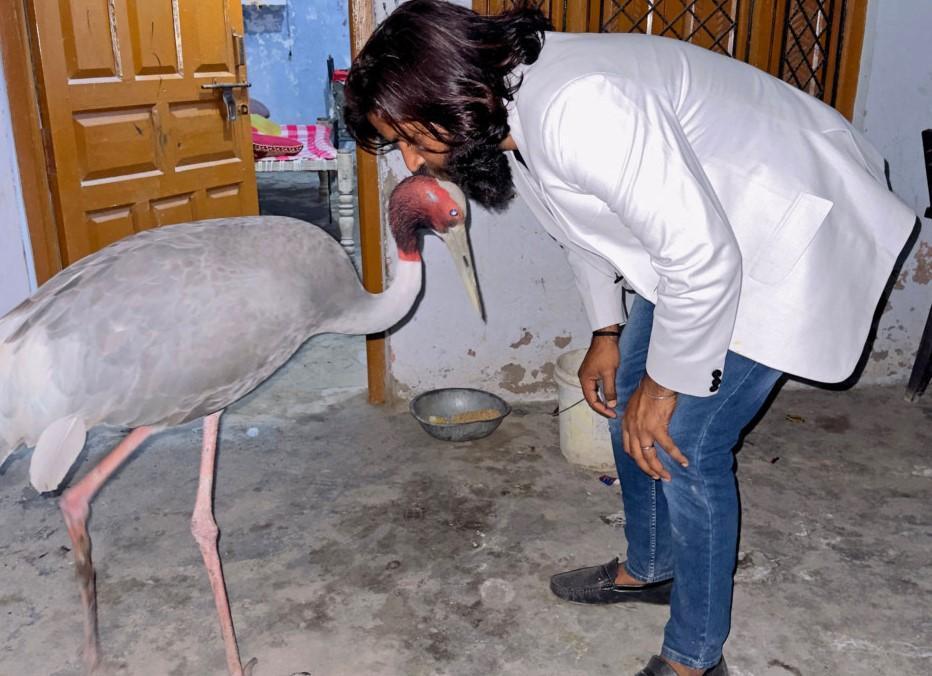
An Indian farmer whose extraordinary bond with a large bird made him a social media star has asked for his feathered friend to be set free after it was captured by wildlife authorities.
Mohammad Arif rescued the injured Sarus crane, a crimson-necked wetlands species that can grow up to 1.8 meters in height and nursed it back to health.
He set it free six weeks later, but the crane remained near his home in the city of Amethi, trailing the farmer when he went for bike rides and eating out of his hands.
“The bird would stay with its family during the day and return in the evenings. Or in the afternoons when it was hungry it would come and wait at our door,” Arif, 30, told AFP on April 13.
Videos of the bird and his human guardian went viral on social media and Arif amassed nearly 300,000 Instagram followers by documenting their exploits.
Their remarkable friendship was rudely interrupted last month when authorities captured the crane and later brought it to a zoo in Kanpur, a city more than four hours’ drive away.
The crane is currently in a small quarantine cage, but Arif has asked for the bird, which he refers to simply as “friend,” to be released.
Arif went to visit the crane on April 11 and video of their emotional reunion was shared online, with footage showing the bird flapping its wings excitedly and jumping up and down.
“The moment I reached the zoo, it recognized my voice,” said Arif. “It appeared quite distressed. Maybe it thought I will get him released from the prison.”
Media reports of the bird’s plight have led to an outpouring of sympathy from the Indian public, with nearly 4,000 people signing an online petition demanding the crane’s freedom.
“The crane committed no crime. Is being friendly with human beings a crime?” text accompanying the petition said.
The Sarus crane is the tallest flying bird in the world and is listed as “vulnerable” by the International Union for Conservation of Nature.
Less than 20,000 of the species remain in India, according to the Worldwide Fund for Nature.
Arif said his friend should be released either into the forest or a bird sanctuary.
“It has never lived in a cage before, it has always lived free,” he said.
He was also confident the bird would return to his home.
“The moment they release it, it will come back to me,” he said.